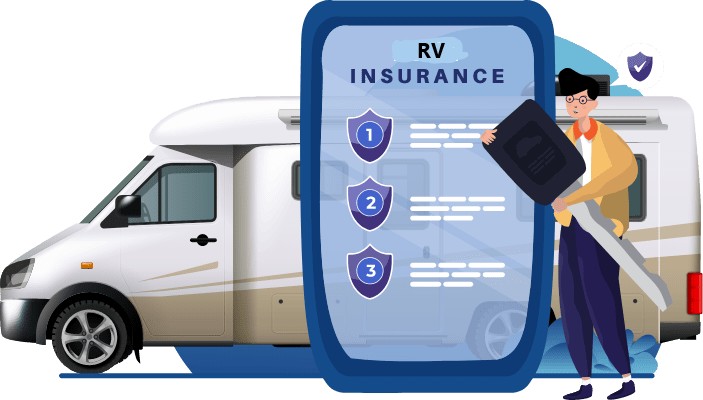Are you new to RVing and looking for the best insurance deals to protect your adventure on wheels? Look no further! As a new RV owner, it’s important to understand the significance of having proper insurance coverage. Whether you have a motorhome or a travel trailer, getting the right insurance will give you peace of mind and financial protection in any unforeseen events.
RV insurance comparison is essential to ensure you get the best coverage at the most affordable rates. With numerous insurance providers offering different policies, it can be overwhelming to make the right choice. That’s why we’re here to help you navigate the options and find the best RV insurance deals that suit your needs.
Get the Best RV Insurance Deals Now – Key Takeaways
- RV insurance is essential for new RV owners as it provides coverage for potential damages, accidents, and liability.
- There are different types of RVs, such as motorhomes and travel trailers, each having specific insurance requirements.
- Key coverage options to consider include companion auto, full-timer’s personal liability, personal attachments coverage, total loss replacement, and secured storage.
- Saving on RV insurance premiums is possible through discounts and implementing cost-saving measures.
- Top RV insurance providers in the United States offer competitive rates and comprehensive coverage.
- Effective RV insurance comparison involves evaluating quotes, policies, and considering your specific needs.
- Factors affecting RV insurance rates include the type of RV, coverage options, driving record, and more.
- The process of getting RV insurance quotes and applying for coverage involves gathering information and working with insurance providers.
- Choosing the best RV insurance coverage requires careful consideration of your needs, budget, and level of protection desired.
Now that you understand the importance of RV insurance and the key factors to consider, you can confidently embark on your RVing journey knowing that you have the best insurance deals in place to protect your investment and ensure a worry-free experience.
Next, we will delve into why RV insurance is essential for new RV owners and explore the different types of RVs and their specific insurance requirements. Stay tuned!
Why RV Insurance is Essential for New RV Owners
As a new RV owner, it’s essential to understand why having RV insurance is a must. Not only does it offer valuable coverage options, but it can also provide significant cost savings in the long run.
RV insurance offers coverage for a wide range of risks that RV owners may face on the road. This includes protection against accidents, theft, vandalism, natural disasters, and liability for injuries or damages caused to others. Without RV insurance, you could be responsible for paying out-of-pocket for these expenses, which can be financially burdensome.
Additionally, RV insurance provides peace of mind knowing that you’re protected in case of unexpected events. Whether you’re traveling for a weekend getaway or embarking on a long-term adventure, having the right insurance coverage ensures that you can enjoy your RV experience without worrying about potential risks.
Types of RV Insurance Coverage
- Companion Auto: This policy combines RV and vehicle coverage into a single deductible, making it ideal for campers who tow their RVs with a vehicle.
- Full-timer’s Personal Liability: Provides coverage for injuries that occur inside or near your RV while traveling.
- Personal Attachments Coverage: Protects accessories attached to your RV, such as awnings or satellite dishes.
- Total Loss Replacement: Helps cover the costs of purchasing a new RV if your current one is completely destroyed.
- Secured Storage: Provides coverage for theft or damage to your RV while it’s in storage.
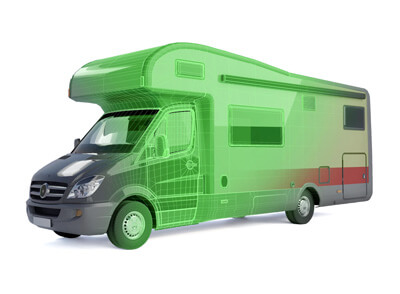
By having these coverage options in place, you can have peace of mind knowing that you’re protected against potential risks and financial losses. RV insurance rates can vary depending on factors such as the type of RV, usage, coverage options chosen, and your driving record. However, the cost of insurance is a small price to pay compared to the potential expenses you could face without proper coverage.
In conclusion, as a new RV owner, it’s crucial to prioritize RV insurance. Not only does it offer essential coverage options, but it also provides peace of mind and significant cost savings in the long run. Take the time to research and compare insurance providers to find the best coverage that meets your specific needs. Remember, investing in RV insurance is an investment in protecting your RV and your adventures on the road.
The Different Types of RVs and Insurance Requirements
Before diving into the world of RV insurance, it’s important to familiarize yourself with the different types of RVs and their corresponding insurance requirements. RVs come in various forms, each with its own unique features and insurance considerations. Here are the main types of RVs and what you need to know about insuring them:
Motorhomes:
Motorhomes are RVs that are driven and have their own engine. They are popular among those who want the convenience of having their living space and transportation combined. Motorhomes are further classified into three classes:
- Class A motorhomes: These are the largest and most luxurious motorhomes, often resembling a bus. They require specialized insurance coverage due to their high value and size.
- Class B motorhomes: Also known as camper vans, these are compact and easy to maneuver. They are usually built on a van chassis and offer basic amenities.
- Class C motorhomes: These are mid-sized motorhomes that feature a distinctive cab-over design. They are more affordable than Class A motorhomes and offer a good balance between space and maneuverability.
Motorhomes typically require their own insurance policy, similar to auto insurance, as they can be driven independently of another vehicle.
Travel Trailers:
Travel trailers, on the other hand, are RVs that are designed to be towed by another vehicle. They do not have their own engine and must be connected to a towing vehicle for transportation. Travel trailers come in a variety of sizes and styles, offering different levels of amenities and comfort.
When it comes to RV insurance, travel trailers are often covered under the owner’s auto insurance policy. However, it’s important to check with your insurance provider to ensure that your policy provides adequate coverage for the trailer.
Insurance Requirements:
The insurance requirements for RVs may vary depending on the type of RV and the state you live in. While liability insurance is typically required for all RVs, additional coverage options may be recommended or mandated depending on your specific situation.
It’s important to review your state’s insurance laws and consult with an insurance professional to ensure that you have the appropriate coverage for your RV. They can help you understand the specific requirements and recommend the necessary coverage options to protect your investment and provide peace of mind during your RV adventures.
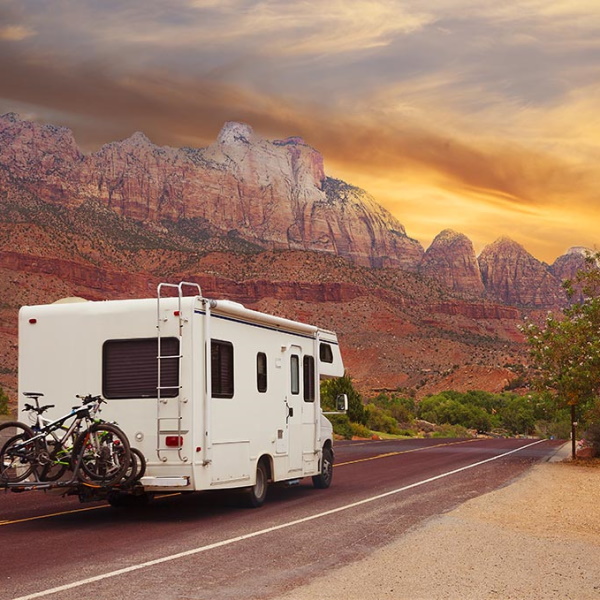
Key Coverage Options to Consider
When it comes to RV insurance, there are several key coverage options that new RV owners should be aware of to ensure comprehensive protection. These options can provide financial security and peace of mind while on your RV adventures. Here are some coverage options to consider:
- Companion Auto: This coverage is designed to protect both your RV and any vehicle that accompanies it in the event of an accident during travel. It combines both vehicles into a single deductible, making it ideal for campers who are pulled by a vehicle or RV owners who tow a car behind them.
- Full-timer’s Personal Liability: This coverage helps protect you in the event that you or someone else becomes injured in or near your RV while traveling. It can help cover costly medical expenses and protect you from potential lawsuits.
- Personal Attachments Coverage: While some policies may protect your RV and additional vehicles while traveling, what about the personal attachments that make your RV feel like home? Personal attachments coverage helps protect against damage to things such as your awning or satellite dish.
- Total Loss Replacement: Even if you can afford to replace your RV in the event of a catastrophic loss, you shouldn’t have to bear the entire financial burden. This coverage helps cover the costs of purchasing a new RV should your current one become destroyed.
- Secured Storage: Storing your RV in a secure facility is a great way to protect it when not in use. However, it’s important to have coverage for any potential theft or damage that may occur while it’s stored away. Secured storage coverage provides a safety net should you become a victim while storing your RV.
These coverage options can vary depending on the insurance provider, so it’s important to review your policy and discuss your specific needs with your insurance agent. By selecting the right coverage options, you can ensure that you have the protection you need for your RV and your peace of mind.
RV Insurance Discounts and Savings Tips
As a new RV owner, finding ways to save on your insurance premiums is always a top priority. Here are some valuable discounts and savings tips to consider:
- Bundle your policies: Many insurance providers offer discounts if you bundle your RV insurance with other policies, such as auto or homeowners insurance.
- Safe driver discounts: Maintaining a clean driving record can help you qualify for lower insurance rates. Avoid accidents and traffic violations to maximize your savings.
- Safe storage discounts: If you store your RV in a secure location, such as a storage facility with surveillance and security measures, you may be eligible for a discounted rate.
- Membership discounts: Certain RV clubs and organizations offer exclusive discounts on insurance premiums. Check if any memberships you have qualify for discounted rates.
- Deductible options: Opting for a higher deductible can lower your monthly premiums. Consider your financial situation and choose a deductible that you can comfortably afford in the event of a claim.
- Pay in full: Some insurance companies offer discounts if you pay your annual premium upfront instead of monthly installments.
- RV safety features: Installing safety devices such as anti-theft systems, alarm systems, and GPS trackers may qualify you for additional discounts.
By implementing these savings tips and taking advantage of available discounts, you can secure affordable RV insurance coverage without compromising on quality and protection.
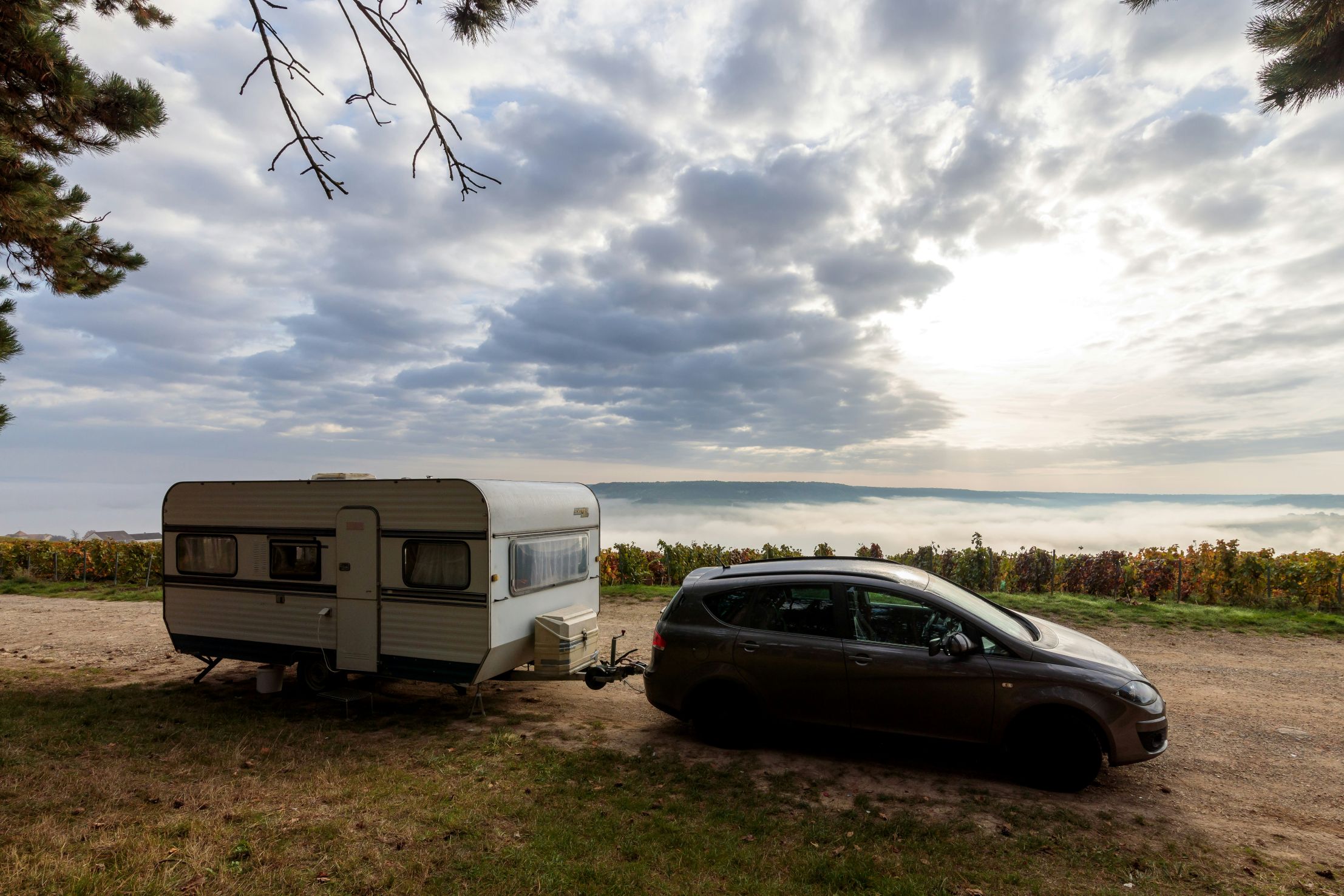
Remember, every insurance provider may offer different discounts and savings opportunities, so it’s essential to compare quotes from multiple companies to find the best RV insurance deals. Take the time to research and evaluate different insurers based on their coverage options, customer service, and pricing.
When comparing quotes, consider factors such as coverage limits, deductibles, and any additional features or services included in the policy. It’s crucial to strike a balance between affordability and adequate coverage to protect your RV investment.
As you embark on your RV adventures, rest easy knowing that you have the best insurance coverage to safeguard your travels and provide peace of mind. Follow these savings tips, explore available discounts, and choose the right RV insurance policy to enjoy the open road with confidence.
Top RV Insurance Providers in the United States
When it comes to choosing an RV insurance provider, it’s important to consider reputable companies that offer the best coverage at competitive rates. Here are some of the top RV insurance providers in the United States:
Good Sam
Good Sam beleives your RV is like a small drivable apartment with its own engine and driving chassis. Just like houses need their own policy, your motorized home needs its own specialized RV insurance, too. Good Sam RV insurance provides:
- State-mandated coverages you may be legally required to have.
- Specialized RV coverages unique to your RV, whether it is Class A, Class B, Class C or a Fifth-Wheel Trailer.
- Specific RV coverages and limits for your RVing lifestyle, such as if you are a full-timer.
Geico
Geico is a well-known insurance provider that offers a variety of coverage options for RV owners. They provide specialized policies for motorhomes and travel trailers, including Class A, B, and C motorhomes, as well as conventional and fifth-wheel travel trailers. Geico offers online quotes and discounts for insuring multiple vehicles.
Progressive
Progressive is another popular choice for RV insurance, with coverage available for various types of recreational vehicles, including fifth-wheels, pop-ups, and truck campers. They offer comprehensive coverage options and a range of discounts to help customers save on their premiums.
Allstate
Allstate offers comprehensive coverage for different types of RVs, including motorhomes and travel trailers. They have special coverage options for Airstream travel trailers and provide additional coverage for attached accessories such as awnings and satellite dishes. Allstate also offers discounts for RV association memberships and insuring multiple vehicles.
Nationwide
Nationwide is known for its wide coverage options for RVs, including motorhomes, travel trailers, and pop-ups. They offer customizable policies tailored to specific types of RVs and provide various discounts for customers to save on their insurance premiums.
When choosing an RV insurance provider, comparing quotes and policies is important to find the best coverage that suits your needs. Consider coverage options, discounts, customer service, and financial strength. Doing thorough research and choosing a reputable insurance provider can ensure that your RV is protected on your travels.
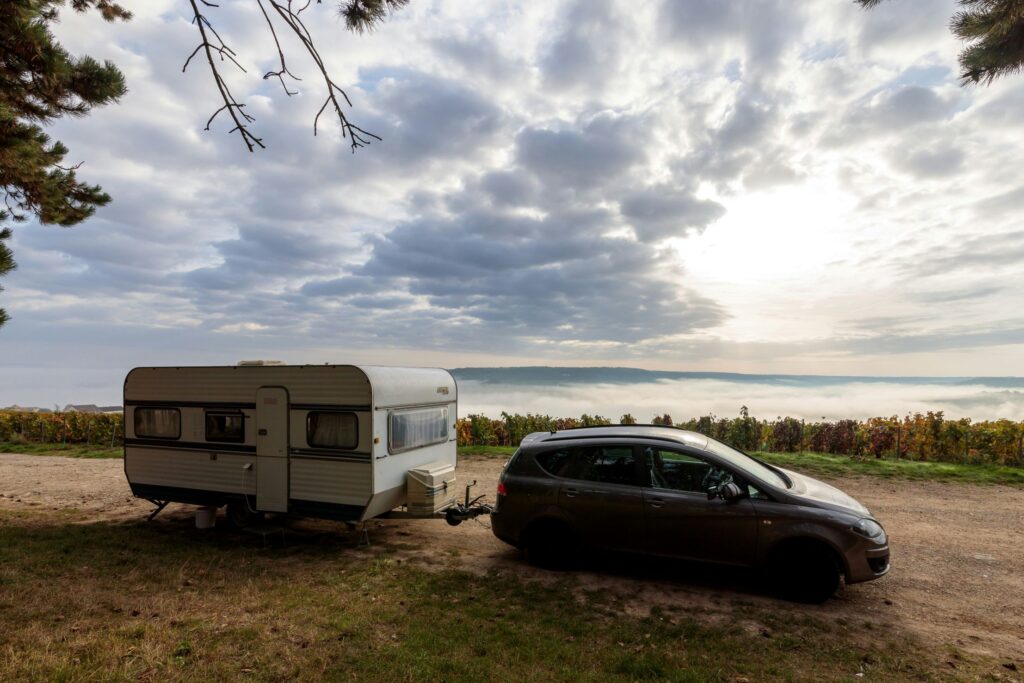
RV Insurance Comparison Tips
Conducting an RV insurance comparison is crucial for new RV owners to ensure they get the best investment coverage and value. With so many options available, navigating the different policies and providers can be overwhelming. To simplify the process and make an informed decision, consider the following tips:
1. Gather Multiple Quotes
Obtaining quotes from multiple RV insurance providers allows you to compare coverage options and prices. Request quotes based on your specific RV type, coverage needs, and personal circumstances. Keep in mind that the cheapest quote may not always be the best option, as it’s important to consider the level of coverage provided.
2. Review Coverage Options
Thoroughly review the coverage options offered by each insurance provider. Consider factors such as liability coverage, comprehensive and collision coverage, personal property coverage, and roadside assistance. Ensure that the coverage options align with your needs and provide adequate protection in case of accidents, damages, or theft.
3. Check for Discounts
Many RV insurance providers offer discounts that can help lower your premiums. Look for discounts such as safe driver discounts, multi-policy discounts (bundling your RV insurance with other insurance policies), paid-in-full discounts, and discounts for completing RV safety courses. Take advantage of these discounts to maximize your savings.
4. Research Reputation and Customer Service
Research the reputation and customer service of the RV insurance providers you are considering. Read customer reviews and testimonials to gain insights into their experiences with the company. Look for insurance providers with positive feedback and a strong track record of customer satisfaction, as this indicates reliable service and support in case you need to file a claim.
By following these RV insurance comparison tips, new RV owners can make an informed decision when choosing the best insurance coverage for their needs. Remember to weigh the coverage options, compare quotes, and consider discounts while prioritizing reputation and customer service. With the right insurance coverage, you can enjoy your RV adventures with peace of mind.
Understanding RV Insurance Rates and Factors Affecting Them
RV insurance rates can vary depending on several factors. By understanding these factors, new RV owners can navigate the insurance market more effectively.
1. Type of RV: The type of RV you own will impact your insurance rates. Motorhomes, travel trailers, and other types of RVs each have their own risk profiles and coverage requirements, which can affect the cost of insurance.
2. Usage and Mileage: How often you use your RV and the number of miles you travel can influence your insurance rates. If you plan to use your RV frequently or for extended periods of time, your premiums may be higher.
3. Coverage Options: The coverage options you choose for your RV insurance policy will also affect your rates. Consider the specific coverage options you need, such as liability coverage, comprehensive coverage, collision coverage, and personal attachments coverage.
4. Insurance Deductible: The deductible you choose for your RV insurance policy can impact your rates. A higher deductible may result in lower premiums, but it also means you’ll have to pay more out of pocket in the event of a claim.
Factors to Consider When Getting RV Insurance Quotes
When comparing RV insurance quotes, keep these factors in mind:
- Insurance Provider: Different insurance providers offer different rates and coverage options. Research and compare quotes from multiple providers to find the best deal for your needs.
- Discounts: Ask about available discounts, such as safe driver discounts, multi-policy discounts, and RV club discounts. These can help lower your insurance premiums.
- Claims Process: Consider the claims process of each insurance provider. Look for a provider with a user-friendly claims process and positive customer reviews.
Understanding the factors influencing RV insurance rates and comparing quotes from different providers can help new RV owners find the best coverage at the most affordable rates. Take the time to research and evaluate your options to ensure you have the right insurance protection for your RV adventures.
How to Get RV Insurance Quotes and Apply for Coverage
Ready to get the best RV insurance deals? Here’s a step-by-step guide on how to obtain RV insurance quotes and apply for coverage hassle-free.
Gather Your Information
Before you start requesting RV insurance quotes, gather all the necessary information. This may include details about your RV, such as its make, model, year, and VIN number. You’ll also need your personal information, such as your name, address, and driving history. These details will make the process smoother and ensure you receive accurate quotes.
Research and Compare RV Insurance Providers
Next, research and compare RV insurance providers to find the best deals and coverage options. Look for reputable companies that specialize in RV insurance and have positive customer reviews. Consider factors such as coverage options, rates, discounts, and customer service. Request quotes from multiple providers to compare prices and coverage.
Request RV Insurance Quotes
Once you have identified the RV insurance providers that meet your needs, visit their websites or contact their customer service to request quotes. Provide them with the necessary information about your RV and personal details. Some insurance companies may offer online quote forms where you can input your information and receive a quote instantly. Others may require you to speak with an agent over the phone.
When requesting quotes, be sure to ask about any available discounts or savings opportunities. Many RV insurance providers offer discounts for things like safe driving records, bundling multiple policies, or being a member of certain RV clubs or organizations. Take advantage of these discounts to get the best possible deal.
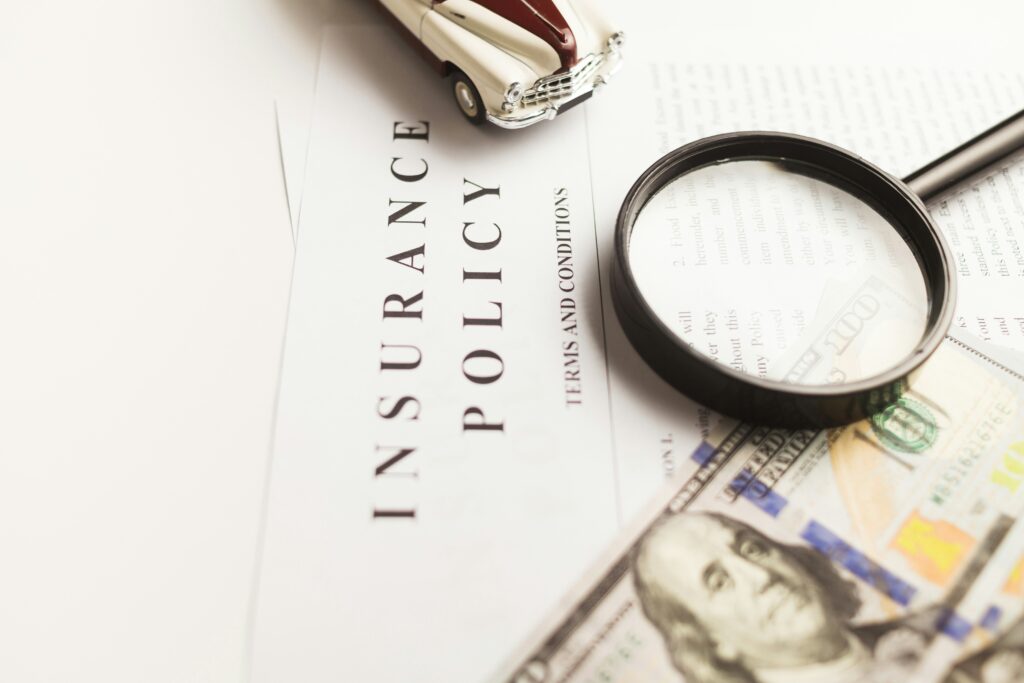
Apply for Coverage
After reviewing the quotes and comparing the coverage and rates, choose the RV insurance policy that best fits your needs and budget. Contact the chosen insurance provider to complete the application process. They will guide you through the necessary steps and may require additional information or documents. Once your application is approved, make the required payment to activate your coverage.
Review your RV insurance policy periodically to ensure it meets your needs. As your RV usage or circumstances change, you may need to adjust your coverage. By staying proactive and informed, you can always have the best RV insurance coverage for your needs.
Tips for Choosing the Best RV Insurance Coverage for Your Needs
Choosing the right RV insurance coverage is crucial for new owners. Here are some tips to help you make an informed decision that protects your investment:
- Evaluate your needs: Assess your RV’s value and consider the coverage level you require. Determine if you need comprehensive coverage or if liability coverage is sufficient.
- Consider specialized coverage: Depending on your RV type, such as a motorhome or travel trailer, you may need specific coverage options. Look for policies that provide coverage for personal attachments, total loss replacement, and secured storage.
- Research insurance companies: Look for reputable insurance providers that offer RV insurance. Read reviews and compare customer satisfaction ratings to ensure you choose a company known for excellent service and claims handling.
- Obtain multiple quotes: Request quotes from several insurance providers to compare coverage options and rates. Consider factors such as deductibles, limits, and any additional discounts or benefits offered by each company.
- Review policy details: Carefully read the terms and conditions of each insurance policy. Pay attention to exclusions, limitations, and any additional fees or charges. Ensure that the policy meets your specific needs and provides adequate coverage.
- Ask about discounts: Inquire about available discounts that can help lower your insurance premiums. These may include bundling your RV insurance with other policies, having safety features installed in your RV, or being a member of RV associations.
- Consider customer support: Look for insurance companies that offer excellent customer support and easy claims processes. Having prompt and reliable assistance can make a significant difference if you ever need to file a claim.
By following these tips, you can make an informed decision and choose the best RV insurance coverage for your needs. Remember, finding the right insurance will give you peace of mind and protect your investment, allowing you to fully enjoy your RV adventures.

Get the Best RV Insurance Deals Now – Conclusion
In conclusion, as a new RV owner, finding the best insurance deals is essential to protect your adventure on wheels and ensure peace of mind throughout your travels. RV insurance provides coverage for various types of RVs, including motorhomes and travel trailers, and offers a range of options to cater to your specific needs. By obtaining RV insurance, you can protect yourself against accidents, injuries, and property damage, both on the road and while your RV is in storage.
When considering RV insurance, it’s important to understand the different coverage options available. Companion Auto coverage combines your RV and tow vehicle under a single policy, while Full-timer’s Personal Liability coverage protects you in case of injuries or accidents that occur inside or near your RV. Personal Attachments coverage ensures that your personal belongings and attachments, such as awnings or satellite dishes, are protected against damage. Total Loss Replacement coverage helps you recover the cost of purchasing a new RV if your current one is destroyed, and Secured Storage coverage provides peace of mind when storing your RV.
To get the best RV insurance deals, it’s recommended to compare quotes from different insurance providers. Top RV insurance providers in the United States include Geico, Progressive, Allstate, and Nationwide, which offer competitive rates and comprehensive coverage. Understanding the factors that affect RV insurance rates, such as the type of RV, usage, coverage options, and your driving record, can help you make informed decisions and potentially save on premiums. By following these tips and considering your specific needs, you can choose the best RV insurance coverage for your new RV.
Don’t delay in getting RV insurance quotes and applying for coverage. Whether you’re a full-time RVer or someone who enjoys occasional road trips, having the right insurance is crucial. Protect your investment and ensure a worry-free RV experience by securing the best insurance deals available. Start your search for RV insurance now and embark on your RVing adventures with confidence.
Get the Best RV Insurance Deals Now FAQs
Q: Is RV insurance required for all types of RVs?
A: RV insurance requirements depend on the type of RV. Motorhomes generally require their own policy, while travel trailers may be covered under a part of your auto insurance policy.
Q: What type of insurance should I have on my RV?
A: At the minimum, you should have liability insurance for your RV. Comprehensive and collision coverage are also recommended to repair or replace your RV in case of damages.
Q: How much does RV insurance cost?
A: RV insurance premiums depend on factors such as the type of RV, coverage options, deductible, usage, and driving record.
Q: Does RV insurance cover natural disasters or storm damage?
A: Comprehensive coverage can cover damages from natural disasters or storm damage, but it’s important to review the specific policy for any exclusions.
Q: How can I save money on RV insurance?
A: You can save money on RV insurance by taking advantage of discounts, bundling insurance policies, maintaining a clean driving record, and comparing quotes from different insurance providers.
